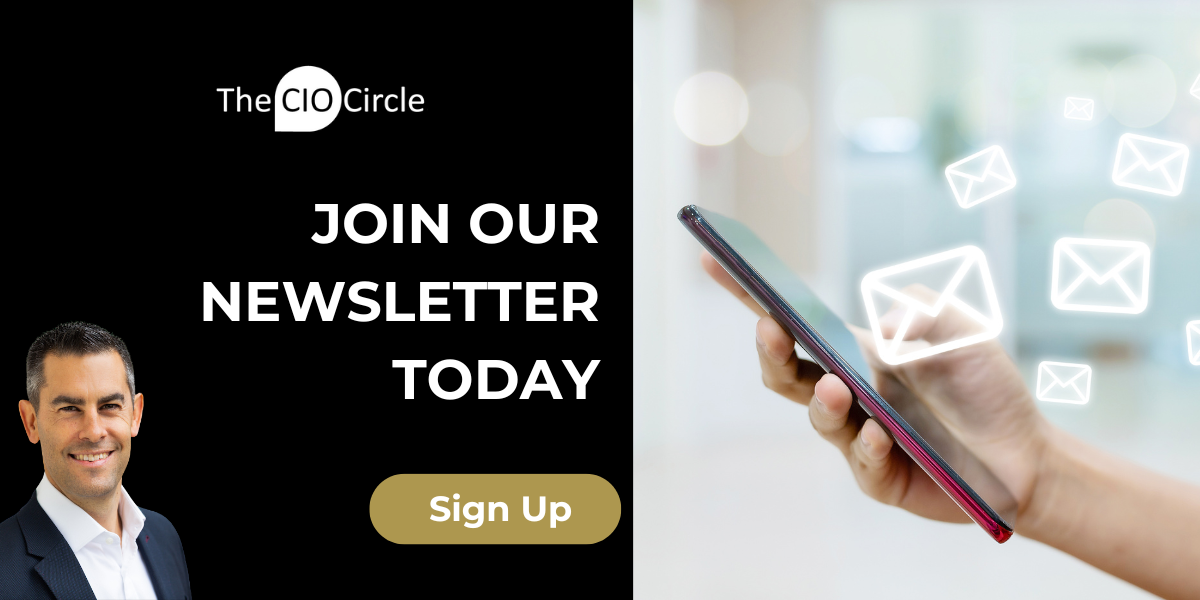RYAN PURVIS
CIO at HiLo Marine Risk Management
Can you please provide a little introduction about yourself
My passion is transforming the business to leverage digital technology and tools, enabling people to work anytime and anywhere.
Currently, I work as the Chief Information Officer at HiLo Marine Risk Management, an industry-leading initiative using data transformed into actionable information to improve safety. And I am the Non-Executive Director of the UK Azuro Solutions business, and we deliver value by helping our customers solve problems and achieve business objectives.
During my career, I’ve amassed a vast knowledge base from working on major projects in extensive financial services & property, namely working with UBS, JP Morgan Chase and JLL.
One of the things I enjoy about my job is that it is not just simply changing technology but also changing our approach to it. I take pleasure from working with senior stakeholders helping to challenge, influence, and support them in solving their most complex problems by using technology as a business-enhancing tool.
I am a Certified Information System Security Professional (CISSP), and I have a BSc in Mathematics with an endorsement in Computer Science and Informatics. I have also completed the Management Development Programme with the Gordon Institute of Business Science (GIBS)
I have two young children; I am an avid reader, golfer, Springbok and Red Sox fan. I host a podcast called the Digital Workspace Works www.digitalworkspace.works. We spend our time between South Africa and the United Kingdom.
What has your journey to your position been like? What path have you taken?
I started my career in 2000, working for a Microsoft Gold Partner in Johannesburg, South Africa, beginning as a developer working primarily with Microsoft products like SharePoint, Content Management Server and SourceCode’s K2. I was fortunate to be allowed to look after the internal infrastructure, architecture and pre-sales. The experiences I gained in this space set a sound basis for each role I took on after that.
Over the period from 2000 to 2012, I worked for (as I mentioned) Microsoft Gold Partners within the System Integrator and with some speciality organisations that were Software Vendor. Without knowing it at the time, I was building up a set of product development knowledge.
We moved to the UK in 2012, and I switched over to the client-side, working in desktop engineering for JPMorgan Chase (JPMC) and End User Tools for UBS. I talk about these together because they were similar roles with similar goals: to manage and consistently improve the end user’s experience and make sure their technology tools were not friction to their ability to work. I also spent time in the cyber security space and learnt a lot there from some brilliant people.
In the middle of JPMC and UBS, I worked in what I considered a junior CIO role for JLL. It was a role that started as an IT business partner for JLL but quickly developed into setting up a product delivery service to deliver CRM to the business for the business – a complete pivot from the previous approach.
It was the culmination of the experiences and learnings that lead me into the role at HiLo as their CIO / CTO. HiLo was a small business operating primarily with Excel as their core business tool. Over the last three years, we have transformed the company as high speed (sometimes ludicrous speed) to deliver a SaaS offering to customers.
Has it always been your vision to reach the position you’re at? Was your current role part of your vision to become a tech leader?
Yes – I’ve always looked to be in a position to have the ability to enable the business needs leveraging technology. I have an innate drive to learn and optimise and constantly seek new challenges. Each organisation I’ve worked in has prepared me better for the next step in my career and, not only that, to be a better human, friend, partner, and father.
It is not always easy and ‘fun’ – sometimes it has meant a stiff realignment to the purpose, but that’s probably true for all of us.
HiLo has been a great place to work and be invested – starting as a small organisation that is increasing, there have been many challenges to tackle. I’ve also benefited from working with some driven, intelligent and visionary people who have pushed me to grow.
Have you had a role model or mentor that has helped you on your journey?
I’ve been fortunate to have many key people that have supported me through my career. Whilst I’ve always been clear on where I’ve wanted to get to, mostly I’ve needed guidance on ‘how to get there and ways to handle situations that I’ve not had before or mishandled where there were different (more preferable) options.
I’d add that sometimes it’s not a formal mentor/mentee relationship but a conversation at the right time or watching and learning from others. The key is to get feedback and be willing to take it on objectively.
I also draw on experiences from playing sport and being coached there. Unfortunately, some of those lessons have only clicked into place much later in life!
"The tech leader role focus needs to understand people in the business and understand the business goals so that they, as the leader, can enable the people to do their work in the best way possible for the organisation."
How do you see the role of the technology leader evolving over the next 5 years?
I think the pandemic has finally broken down the final barriers between business and technology business.
For the most part, non-technical / technology people have had to get hands-on and be empowered to own their part of the technology portion of the landscape.
End-user empowerment is excellent as it can now move away from the traditional over the fence (log a ticket for help) to a more peer-to-peer collaboration, and a mutual understanding can grow. The Tech Leader has moved from owning a cost centre justifying their spend to a partner looking to help the business generate value where the costs are necessary investments to grow the business and mitigate risk.
The tech leader role focus needs to understand people in the business and understand the business goals so that they, as the leader, can enable the people to do their work in the best way possible for the organisation.
I would plan and design the ecosystem for an entirely digitally nomadic lifestyle and all the considerations. Technology isn’t the issue anymore; it’s the people and process side that needs the help.
What skills do you think leaders of the future will need in order to thrive?
There will be some common skills that we all need, but I think these are the key:
Be human – empathise, help and respect.
Be a team player – listen, share, collaborate and speak up
Be curious – try things, integrate and learn from things that work or don’t
A big thank you to Ryan Purvis from HiLo Marine Risk Management for sharing his journey to date.
If you would like to gain more perspective from Tech Leaders and CIOs you can read some of our other interviews here.
September 2, 2021


